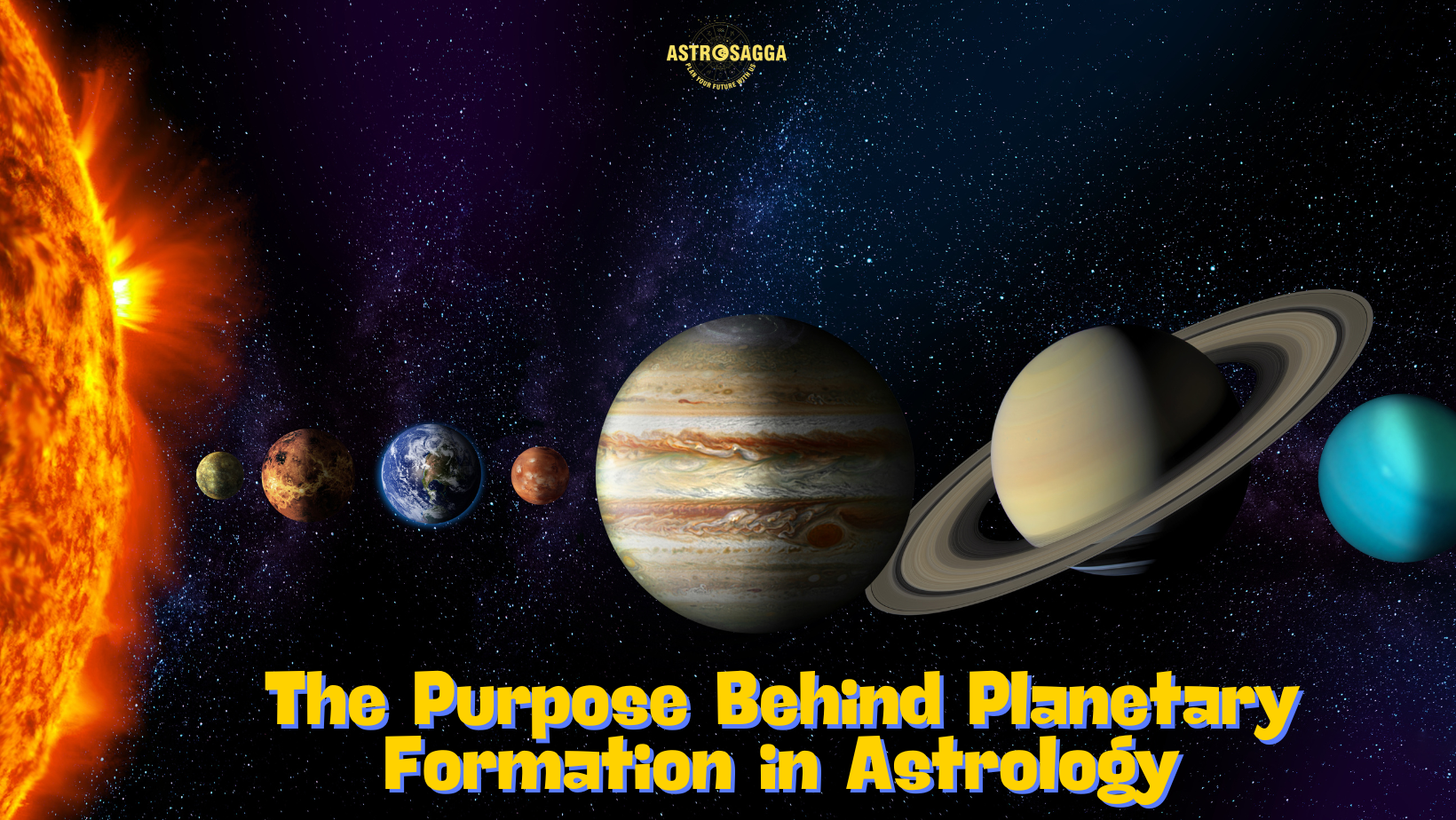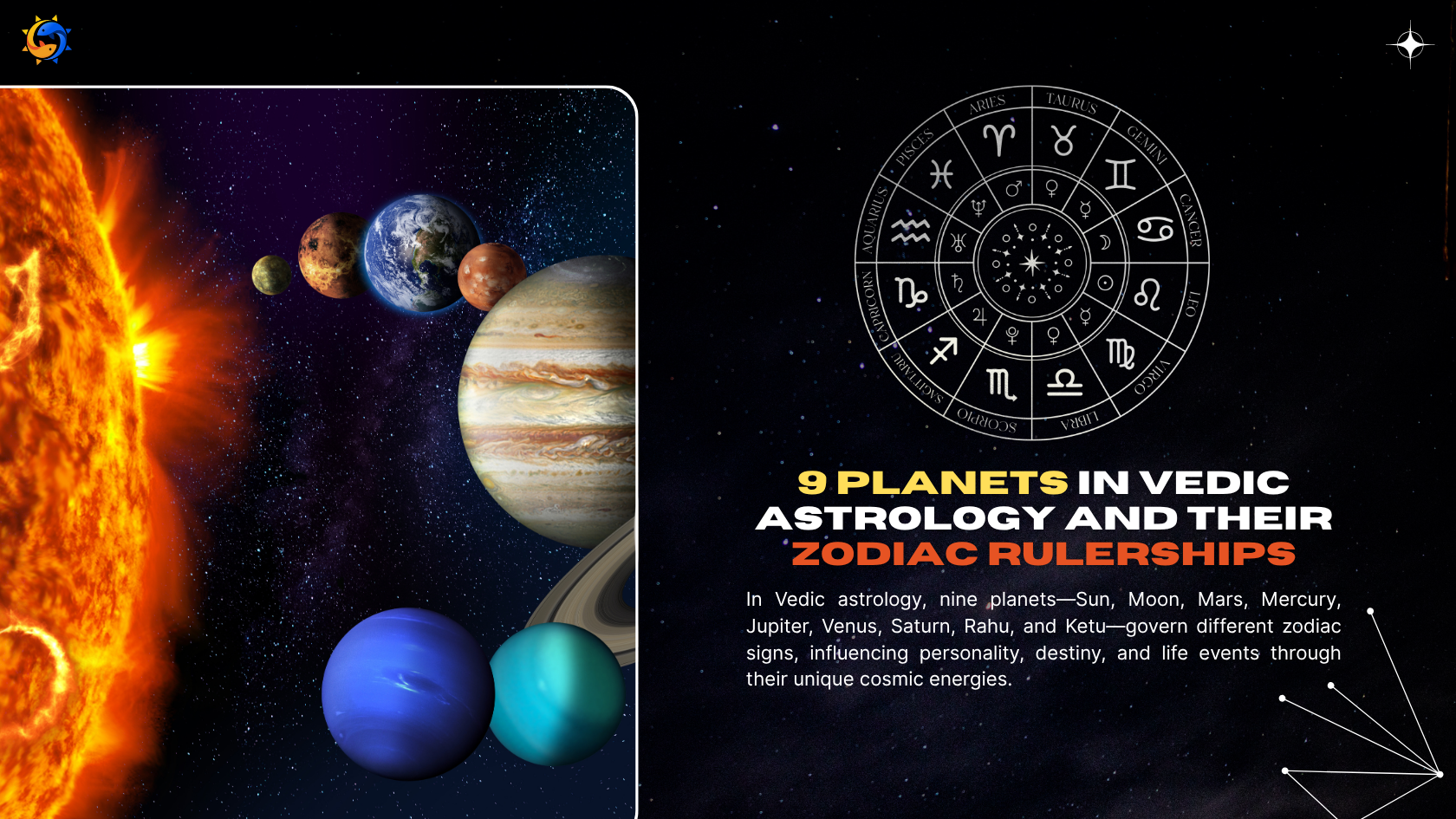Astrology, particularly Indian astrology or Jyotisha Shastra, holds a revered place in ancient wisdom, where the formation and alignment of planets are considered purposeful and divine. According to Indian scriptures and Vedic knowledge, the celestial bodies are not just physical entities but carry significant spiritual energy and influence that shape the course of human life and the universe.
The Divine Purpose of Planetary Formation
In Indian astrology, the planets (or Grahas) are believed to be manifestations of divine energies. Each planet embodies a specific deity and governs particular aspects of life and karma. The Brihat Parashara Hora Shastra, one of the foundational texts of Vedic astrology, details the characteristics, influences, and roles of these celestial bodies. The purpose behind their formation and placement is deeply connected to the cosmic order and the principles of karma.
Regulation of Karma:
According to Vedic philosophy, the primary purpose of planetary formation is to regulate karma. The planets are seen as the cosmic agents that administer the fruits of our past actions (karma). Each planet, through its movements and positions, influences our lives by bestowing rewards or challenges, guiding us through our karmic journey. The planetary positions at the time of one’s birth, also known as the natal chart or Janma Kundali, reflect the karmic blueprint of an individual’s life.
Guidance for Spiritual Growth:
Planets serve as guides in our spiritual journey. The Navagrahas (nine planets) each govern different aspects of our consciousness and life experience. For instance, Sun represents the soul and ego, Moon symbolizes the mind and emotions, Jupiter is the planet of wisdom and dharma, and Saturn is associated with discipline and lessons through hardship. By understanding the planetary influences in one’s chart, individuals can align their actions with cosmic will, fostering spiritual growth and self-realization.
Maintaining Cosmic Harmony:
The Vedas describe the universe as a perfectly balanced and harmonious system, with planets playing a crucial role in maintaining this balance. The Rig Veda and Atharva Veda both emphasize the importance of planetary alignment in sustaining the rhythms of nature, seasons, and life cycles. The movement of planets, such as the transitions of the Sun and Moon, directly affects earthly phenomena like tides, weather, and agriculture, which are vital for life on Earth.
Reflection of the Divine Will:
In Indian astrology, the planetary formation is seen as a direct expression of divine will. The planets are considered to be the eyes of God, through which the universe and all beings are observed and influenced. The alignment of planets during significant events like eclipses, transits, or planetary conjunctions are often interpreted as signs or messages from the divine, guiding humanity toward specific actions or changes.
Healing and Protection:
The planets are also associated with various healing energies and protective powers. Vedic astrology prescribes rituals, mantras, and remedies (like gemstones and yantras) to appease or strengthen certain planetary influences. For instance, chanting the Gayatri Mantra is believed to harness the positive energy of the Sun, while wearing a blue sapphire can mitigate the challenging effects of Saturn.
Understanding the Nine Planets and Their Divine Purpose
Each of the nine planets in Vedic astrology has a unique role and purpose in the cosmic order. Here is a brief overview of each planet and its divine significance:
Surya (Sun):
Deity: Surya, the Sun God.
Purpose: The Sun represents the soul (Atman), vitality, and the essence of life. It is the source of all energy and is associated with authority, leadership, and self-expression. The Sun governs the day and provides light and warmth, which are essential for life on Earth. In astrology, the Sun is the significator of one's inner self, ego, and purpose in life.
Chandra (Moon):
Deity: Chandra, the Moon God.
Purpose: The Moon governs the mind, emotions, and intuition. It reflects the light of the Sun, symbolizing the reflective and nurturing aspects of life. The Moon influences our moods, instincts, and the subconscious mind. It is associated with motherhood, nourishment, and the cycles of time, including the phases of life.
Mangal (Mars):
Deity: Kartikeya (Skanda), the God of War.
Purpose: Mars represents energy, action, and courage. It is the planet of desire, ambition, and physical strength. Mars governs one's drive, competitiveness, and ability to overcome obstacles. It is also associated with aggression and conflicts, but its ultimate purpose is to empower individuals to take bold actions and protect righteousness (Dharma).
Budha (Mercury):
Deity: Vishnu, the preserver of the universe.
Purpose: Mercury is the planet of intellect, communication, and wisdom. It governs analytical thinking, learning, and expression. Mercury's role is to facilitate understanding, adaptability, and the exchange of ideas. It also governs commerce, trade, and technology, reflecting its influence on the practical and logical aspects of life.
Guru (Jupiter):
Deity: Brihaspati, the Guru of the Gods.
Purpose: Jupiter is the planet of expansion, knowledge, and spiritual growth. It represents wisdom, faith, and higher learning. Jupiter's purpose is to guide individuals toward their Dharma (righteous path) and promote growth in all areas of life, including wealth, education, and spirituality. It is also the planet of benevolence, generosity, and good fortune.
Shukra (Venus):
Deity: Shukracharya, the Guru of the Asuras (demons).
Purpose: Venus governs love, beauty, and relationships. It represents pleasure, luxury, and artistic expression. Venus is associated with harmony, attraction, and the pursuit of happiness. Its role is to bring joy, creativity, and balance into one's life, promoting the appreciation of aesthetics and the finer things in life.
Shani (Saturn):
Deity: Shani, the God of Justice.
Purpose: Saturn is the planet of discipline, responsibility, and karma. It is associated with limitations, delays, and challenges, but its ultimate purpose is to teach patience, perseverance, and the importance of hard work. Saturn governs the lessons of life, maturity, and the consequences of actions. It is often seen as a stern teacher who helps individuals build strength and resilience.
Rahu:
Deity: Serpent Demon, Asura Rahu.
Purpose: Rahu represents obsession, desire, and materialism. It governs unconventional thinking, innovation, and the breaking of boundaries. Rahu's purpose is to challenge the status quo, pushing individuals to explore new territories and question established norms. However, it also represents illusion (Maya) and can lead to confusion and deceit if not balanced with wisdom.
Ketu:
Deity: Serpent Demon, Asura Ketu.
Purpose: Ketu is the planet of detachment, spirituality, and liberation (Moksha). It represents the karmic past, spiritual insights, and the rejection of materialism. Ketu's role is to guide individuals toward self-realization, inner peace, and the dissolution of the ego. It is associated with spiritual awakening, meditation, and the pursuit of higher consciousness.
Conclusion
The purpose behind planetary formation in Indian astrology goes beyond mere prediction; it is deeply rooted in the spiritual and cosmic order. The planets are seen as divine instruments that guide human destiny, administer karmic justice, and maintain the harmony of the universe. By understanding and aligning with these celestial forces, individuals can navigate life’s challenges, grow spiritually, and live in accordance with the cosmic will as revealed in the ancient Sastras. Each planet, with its unique energy and influence, plays a crucial role in shaping the journey of the soul and the evolution of consciousness.












